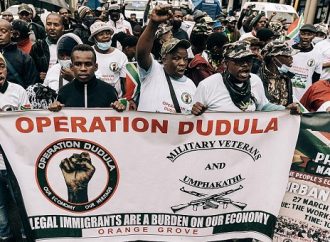In mid-2015, several Nigerian women took to Twitter to highlight some of the patriarchal issues they face living in the country. With the hashtag #BeingFemaleInNigeria, the topic went viral, with most women unfortunately finding the many instances of sexism and discrimination quite familiar. While striking, the trend soon fizzled out. Mark Zuckerberg outreach to Nigerian
In mid-2015, several Nigerian women took to Twitter to highlight some of the patriarchal issues they face living in the country. With the hashtag #BeingFemaleInNigeria, the topic went viral, with most women unfortunately finding the many instances of sexism and discrimination quite familiar. While striking, the trend soon fizzled out.
Mark Zuckerberg outreach to Nigerian women.
On Facebook though, those conversations remain ongoing, mainly thanks to “Female in Nigeria” (FIN), a private Facebook group for women which has now garnered more than 1 million members.
FIN is intended as a non-judgmental safe space where women discuss these issues on a daily basis. Members of the group share experiences including gender discrimination, domestic abuse, violence, and rape.
FIN was started by Lola Omolola, a Chicago-based mother of two, in 2015. Omolola says the kidnapping of more than 200 girls from Chibok in northeastern Nigeria inspired her to start the group.
Since then, it has become a “a safe place, for a woman who has something to say,” she told BBC. “There were women who had been abused for 40 years and hadn’t told anyone.
No one should live like that,” she said. Though she has built a large community around women’s issues in Nigeria, Omolola does not accept requests from advertisers as she does not want to “monetize women’s stories.”
To preserve the group’s familial feel despite its ballooning membership, new members are can only be added by referrals from existing members.
Also, to ensure that members can express themselves without fear of prejudiced responses, users who post negative, judgmental comments are removed from the group. FIN’s work has been commended by Facebook founder Mark Zuckerberg, who recently met with Omolola last week to discuss how to help build better communities like FIN on Facebook.
But while social media might be a safe haven, offline, women’s rights and issues remain a thorny subject in Nigeria. Last year, the Senate voted against a gender and equal opportunities bill that sought to impose tougher penalties for domestic and sexual violence as well as end the long-running cultural antagonistic treatment of widows. The bill also looked to eliminate gender discrimination in politics, education, and employment.
By Yomi Kazeem


















Leave a Comment
Your email address will not be published. Required fields are marked with *